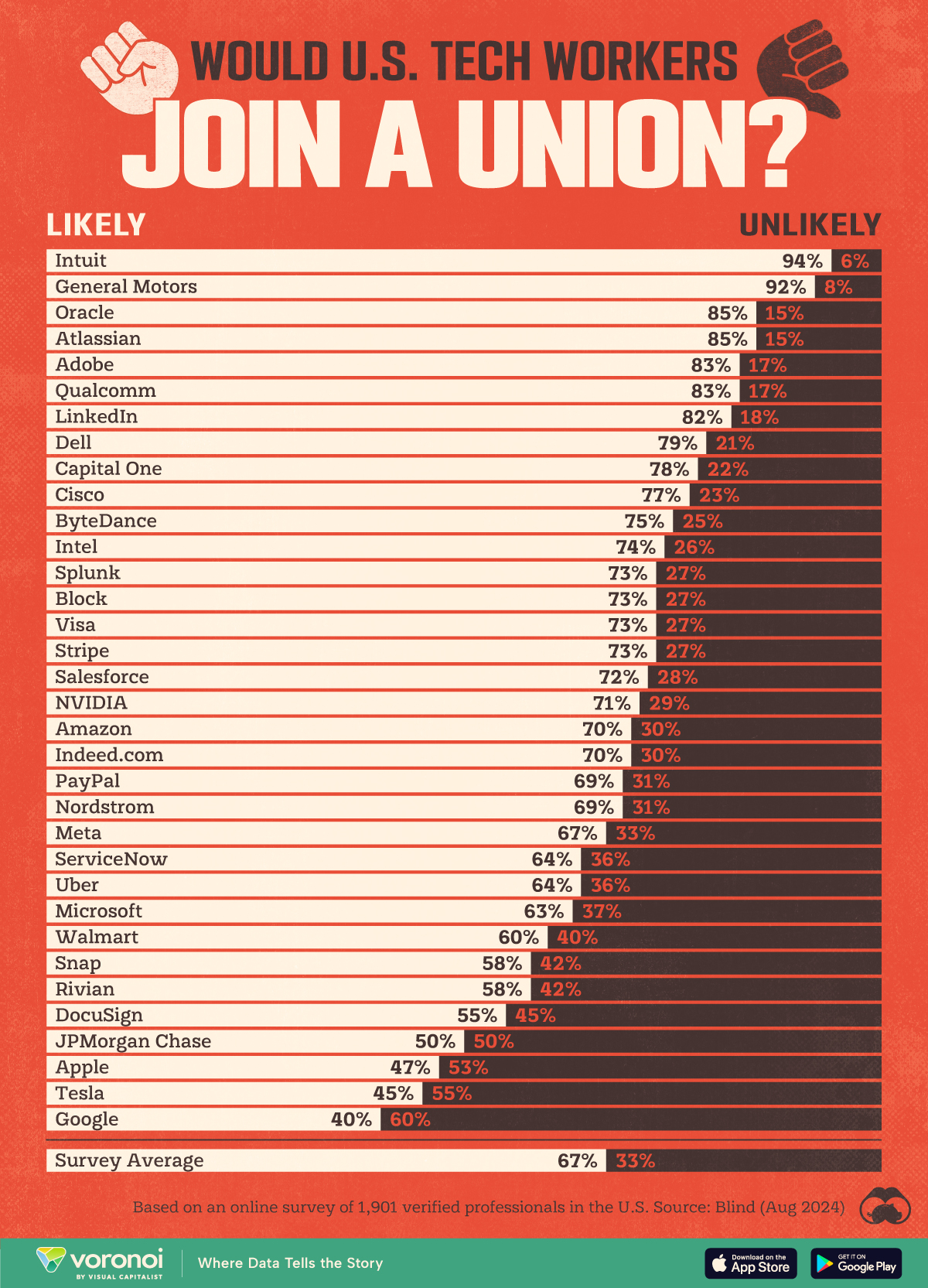this post was submitted on 01 Oct 2024
791 points (98.2% liked)
Technology
71989 readers
3304 users here now
This is a most excellent place for technology news and articles.
Our Rules
- Follow the lemmy.world rules.
- Only tech related news or articles.
- Be excellent to each other!
- Mod approved content bots can post up to 10 articles per day.
- Threads asking for personal tech support may be deleted.
- Politics threads may be removed.
- No memes allowed as posts, OK to post as comments.
- Only approved bots from the list below, this includes using AI responses and summaries. To ask if your bot can be added please contact a mod.
- Check for duplicates before posting, duplicates may be removed
- Accounts 7 days and younger will have their posts automatically removed.
Approved Bots
founded 2 years ago
MODERATORS
you are viewing a single comment's thread
view the rest of the comments
view the rest of the comments

When I think of a tech worker union my thoughts first go to standardizing everyone's pay and limiting what I can earn myself. I've probably fallen to anti-union propaganda.
A tech worker union that says nothing about pay could still do so much.
A union could ensure that the company's incentives are aligned with worker's incentives around things like on-call.
I'd love a union that forced a company to give all on-call workers compensation. Something like:
Basically, if a company is having lots of on-call alerts, or the company is preventing employees from using their comp time, you want this to be directly painful to the company. Incentives should be aligned, what is painful for the worker should be painful for the company.
Or, regarding "unlimited PTO". I'd love to see a union force companies to:
Tech workers have it good compared to a lot of workers, but there are still plenty of abuses a union could help with, even if the union never even mentions pay.
Those compensation requirements would basically make it financially impossible to have someone on-call or they'd just have to hire people for those hours and say they are normal working hours.
How would you force someone to take time off?
These are not the only options. Here are some others:
Something's telling me most orgs where 2 is an option would go with that. Related to that - increases in labor compensation is what forces companies to spend money on capital investment that increases productivity - read new equipment, automation, fixing broken shit, etc. If there are cheap enough slaves to wake up during the night, doing this investment is "low priority" (more expensive) and isn't done.